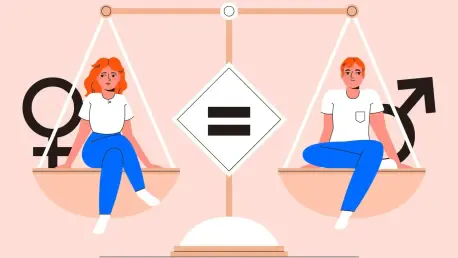The evolving concept of gender equality faces formidable challenges in the digital age, where the rise of the “manosphere,” a collection of online communities advocating for extreme masculine ideals, has surfaced as a threat. These digital spaces often portray themselves as havens for men in distress, seeking identity and community, but have recently gained attention for fostering toxic perspectives that undermine progress toward gender equality. By leveraging the reach of modern social media platforms, these communities not only disseminate misogynistic ideologies widely but also affect real-world environments, such as schools and workplaces, influencing attitudes and interactions in substantial ways.
Understanding the Reach of the Manosphere
Internet Communities and Their Influence
The manosphere’s extensive network online has transitioned from niche forums into mainstream discourse via social media platforms. This evolution allows their narratives to be shared and amplified at an unprecedented scale, exploiting algorithmic biases that favor engaging yet divisive content. The impact of such narratives extends well beyond the internet, as they shape perceptions and behaviors in everyday life. Young men and boys, in particular, are drawn to these communities seeking answers on personal topics like relationships and self-identity, often finding content that depicts them as victims of feminist agendas. The portrayal of women as adversarial figures further entrenches damaging gender dynamics that hinder both individuals and societal growth.
These online spaces provide a platform where masculinity is often portrayed in a simplistic and combative manner, stressing hierarchical power dynamics over cooperation and mutual respect. Unfortunately, this perpetuates hostile stereotypes that affect how men and women interact in various social settings. The normalization of such content also places women at heightened risk, especially in public domains like politics and media, where expressions of misogyny translate into tangible threats and harassment, ultimately deterring women’s participation and public engagement.
Societal Implications
The ramifications of the manosphere extend into broader societal considerations, influencing democratic principles and the safety of women. This digital culture of misogyny challenges efforts aimed at ensuring gender equality and promoting diverse representation within various sectors. By perpetuating harmful stereotypes and encouraging abusive behaviors, the manosphere compromises not only women’s rights but also damages how young men perceive their roles and identities. These skewed perceptions can lead to ingrained biases and discriminatory practices that counteract attempts to foster inclusive and fair communities.
Beyond social dynamics, these influences can skew policy discussions and decisions, diminishing efforts to create more equitable frameworks within workplaces and schools. The infiltration of manosphere ideologies into real-world policies and company cultures further frustrates progress by introducing biases that hinder effective collaboration across genders. Understanding and acknowledging these societal implications are crucial to addressing the challenges posed by the manosphere and devising effective strategies to counteract its influence.
UN Women’s Response to the Manosphere
Educational Initiatives
To combat the burgeoning influence of the manosphere, UN Women is actively championing initiatives that promote gender equality, focusing on education as a key instrument for change. By investing in educational programs that emphasize healthy relationships and responsible digital engagement, these efforts aim to prevent the absorption of harmful ideologies from a young age. Educational initiatives highlight the significance of instilling respect and awareness about gender roles in students early on, ensuring they grow up to appreciate equality and mutual respect as fundamental values.
A critical component of these educational campaigns involves teaching young individuals to critically evaluate the content they consume online. This approach equips them with the skills needed to discern between supportive resources and those perpetuating misogynistic ideologies. Furthermore, fostering digital literacy helps students navigate virtual spaces more safely, reducing their susceptibility to manipulative narratives propagated by the manosphere. Appropriately guided, today’s youth stand to benefit from inclusive and positive digital experiences, propelling society toward more united understandings of gender equality.
Creating Safe Spaces
Central to countering the narrative of the manosphere is the development of safe spaces—both online and offline—that provide objective support and guidance to young men and women. These spaces offer alternative narratives that challenge harmful concepts promoted in toxic online environments, fostering balanced discussions around gender issues. By creating inclusive platforms, UN Women seeks to advocate for open dialogue that recognizes diverse gender identities, promoting an atmosphere of mutual learning and growth.
Safe spaces tackle the pervasive sense of isolation that often drives individuals toward the manosphere, instead offering community-based support that understands and empathizes with their experiences. This network of support extends beyond addressing individual queries to collectively challenging the broader cultural stigmas around femininity and masculinity. By prioritizing inclusivity and openness, these spaces serve as a remedial force against the restrictive ideologies promoted by the manosphere, playing a crucial role in restoring balance to gender discourse.
The Path Forward
In today’s digital era, the journey toward gender equality faces serious obstacles with the emergence of the “manosphere.” This term refers to a collection of online communities that promote extreme masculine ideals, presenting themselves as support networks for men dealing with identity and belonging issues. However, these spaces have increasingly drawn scrutiny for harboring toxic views that threaten advancements in gender equality. Using the expansive reach of social media platforms, these groups spread misogynistic beliefs more effectively, which has tangible impacts in the offline world. They influence attitudes and behaviors in various settings, including schools and workplaces, where these ideologies take root and drive interactions. The potential for these digital communities to shape societal norms and affect progress toward equality makes addressing their impact an urgent matter. The challenge lies in countering their narrative and fostering a more inclusive environment that supports genuine equality for all.









